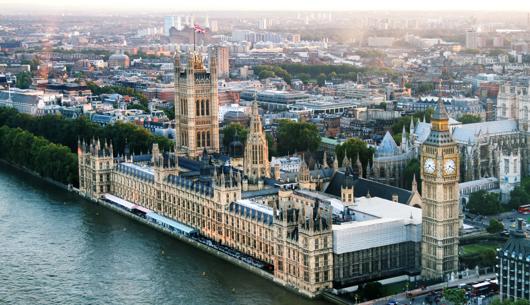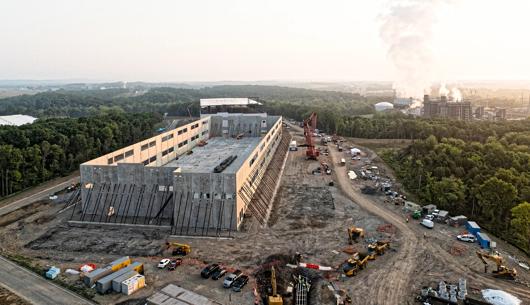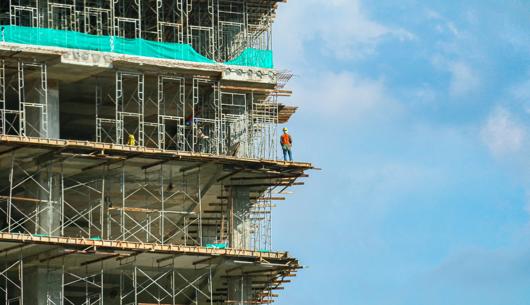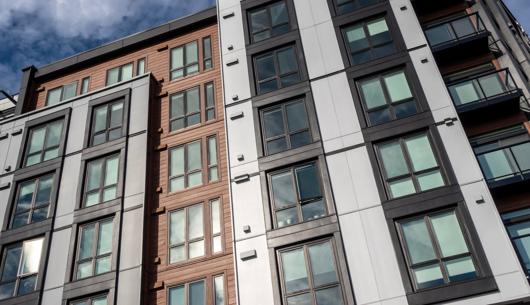Biodiversity net gain (BNG) is a concept that aims to leave the natural environment in a measurably better state than it was in beforehand.
We are now expecting BNG to become mandatory (for certain developments) in January 2024. The Government has published some guidance and blog posts over the past few months in preparation for mandatory BNG, and we summarise below where we are now and what information we are still waiting for.
Timeline
9 November 2021 — The Environment Act 2021 received royal assent. This contained provision for BNG to be introduced in England, and subsequent Government updates confirmed an intention for these requirements to commence in 2023. The Environment Act 2021 set out that the biodiversity objective could be delivered in three ways:
- onsite, within the development site;
- offsite, and such offsite land will need to be secured by a S106 agreement or conservation covenant and registered on a register of offsite sites; or
- through the purchase of statutory biodiversity credits.
21 February 2023 — Defra published its consultation response, having previously run a consultation on BNG regulations and implementation. This provided some helpful indications of policy decisions and likely direction of how BNG would be implemented: Biodiversity Net Gain: Government publishes consultation response | Planning law (brownejacobson.com) This consultation response initially suggested that BNG would become mandatory from November 2023, but this date was subsequently revised to January 2024.
March 2023 — Defra published its consultation response following a technical consultation on the form of metric that will underpin the calculation and delivery of mandatory BNG. Following this, Natural England published Metric 4.0. Based on these publications, we understand that Metric 4.0 will form “the basis of the statutory metric”: Government's metric consultation response | Biodiversity Net Gain (brownejacobson.com)
27 September 2023 — Defra and DLUHC published a timetable for the introduction of BNG: Biodiversity Net Gain moves step closer with timetable set out — GOV.UK (www.gov.uk)
This announcement also confirmed that BNG will apply only to new applications for planning permission for major developments made after January 2024. Mandatory BNG will not be applied retrospectively where planning applications have been submitted or have already been granted planning permission before the implementation date.
By the end of November 2023 — In the next few weeks, we are expecting the Government to publish key guidance documents and secondary legislation. Together, this package of documents should confirm:
- The form of the statutory metric: this is critical, and will be required to calculate the biodiversity value of the pre-development site and the gain required to satisfy the legal requirements of BNG;
- Secondary legislation: including regulations setting out how landowners can register their land if they wish it to be used to deliver offsite units and how these units will be allocated to developments;
- Template documents: including a template biodiversity gain plan (which will need to be approved by local planning authorities (LPAs) prior to developments commencing) and a template habitat management and monitoring plan;
- Further guidance for LPAs, developers and landowners: this will set out in more detail how BNG should be delivered and what roles and responsibilities different parties will have.
As soon as these documents are published, we will be providing further guidance and support for clients. The details that will be confirmed in these documents will help immensely in preparing for the implementation of BNG.
January 2024 — BNG will become mandatory for new applications for planning permission for developments. Defra has confirmed that small sites will not need to deliver BNG until April 2024 and NSIPs are intended to delivery BNG from 2025. Small sites were previously defined by Defra as:
“(i) For residential: where the number of dwellings to be provided is between one and nine inclusive on a site having an area of less than one hectare, or where the number of dwellings to be provided is not known, a site area of less than 0.5 hectares.
(ii) For non-residential: where the floor space to be created is less than 1,000 square metres OR where the site area is less than one hectare.”
We are also waiting for confirmation of what other exemptions will apply — Defra’s consultation in February this year suggested certain developments would not be caught by the BNG requirements (including householder applications, biodiversity gain sites where habitats are being enhanced for wildlife, developments impacting habitat below a specified threshold and, potentially, small-scale self-build and custom housebuilding).
Current guidance available
The Government has already published some guidance (Biodiversity net gain — GOV.UK (www.gov.uk)), including:
- understanding biodiversity net gain
- land manager guidance
- developer guidance (including statutory credit prices)
- calculating a biodiversity value.
Guidance on conservation covenants (which are a type of agreement that can be used to secure BNG in certain circumstances) and details of the application process for Responsible Bodies, are also available: Getting and using a conservation covenant agreement — GOV.UK (www.gov.uk)
Defra’s blog posts have also provided a helpful insight into a number of key issues, including:
- incorporating local nature recovery strategies when planning for biodiversity net gain
- irreplaceable habitats and BNG: what you need to know
- ten actions local planning authorities can take to prepare for biodiversity net gain
- biodiversity net gain for land managers — step-by-step flowcharts
- Offsite BNG: what can you do after 30 years?
Next steps
We are already discussing BNG with clients and helping them prepare for mandatory BNG commencing. We will also be publishing further articles and providing support for our clients once the Government’s package of documents and regulations is published in the next few weeks.
In addition, we will be delivering a series of events for clients, including local authorities, to help navigate what BNG is and how it will need to be delivered. These will consider the different capacities that you could be working in:
- as LPAs responsible for delivering planning policies and approving gain plans;
- as landowners, understanding what opportunities BNG may provide in the offsite market; and
- as developers, having clarity on what will need to be delivered when undertaking your own capital projects and developments.
Further information will be available shortly, but if you have any questions, please contact Helen Gill on helen.gill@brownejacobson.com.










































